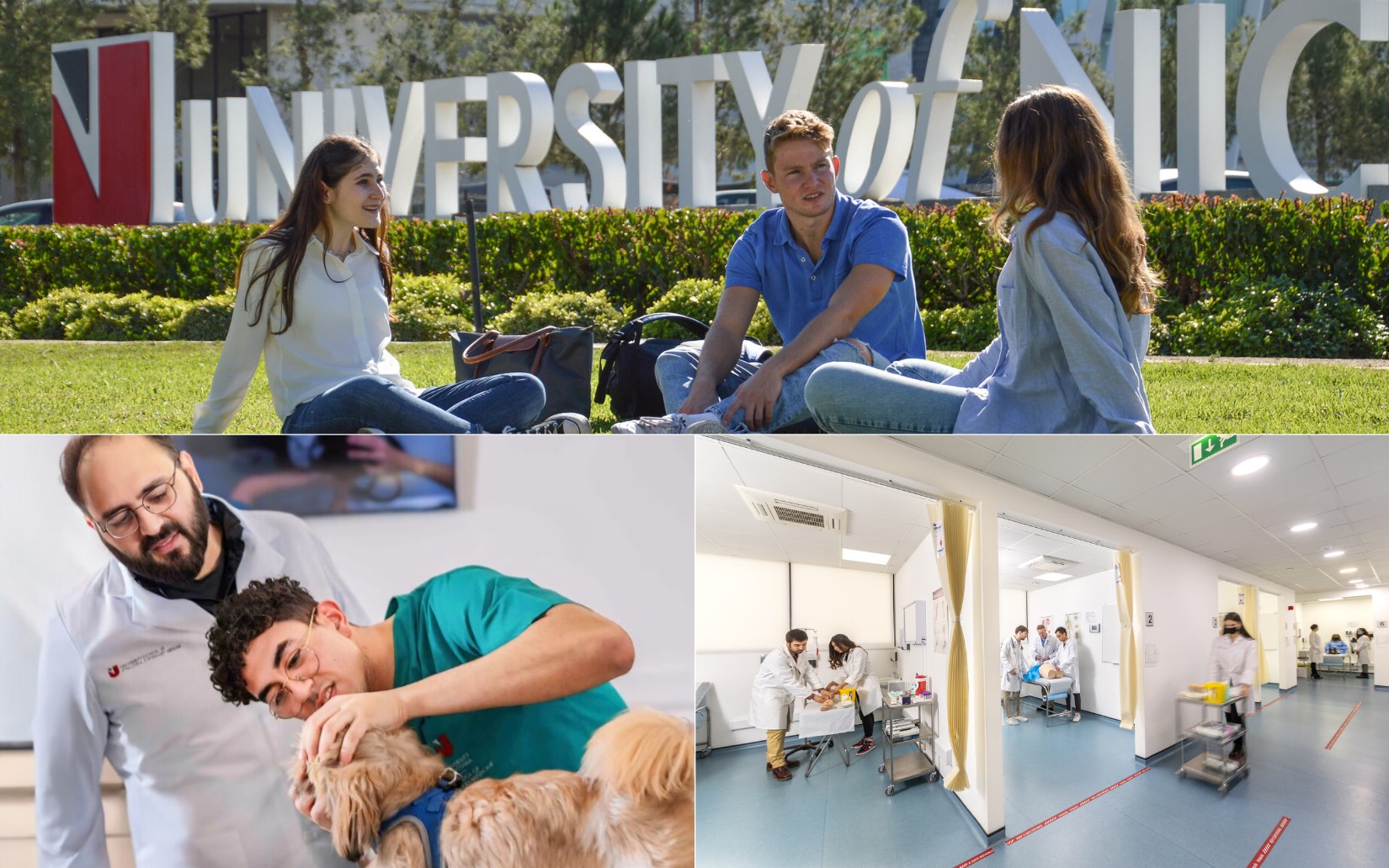Veterinary Medicine
SubjectVeterinary Medicine
Veterinary Medicine

In 2022, the University of Nicosia launched the first veterinary medicine degree in Cyprus. Taught completely in English, this 5-year programme has been developed to meet the requirements for recognition in the EU/EEA. Once the first students have graduated, it is anticipated that the degree with be accredited by EAEVE. The degree is already accredited by the Cyprus Agency of Quality Assurance and Accreditation (CYQAA).
The Doctor of Veterinary Medicine (DVM) programme is designed to offer first-class scientific and clinical training in veterinary medicine. An integrative approach has been adopted to deliver knowledge in a horizontal and vertical manner in order for students to understand the multifaceted science underpinning veterinary practice and research. The primary educational goal of the DVM programme is to prepare graduates for a productive career within the veterinary medical profession, while at the same time give them a strong academic foundation to pursue a research career.
Key features of the DVM Programme:
- EU accredited veterinary degree allowing practice pathways worldwide
- Early exposure to animal care during the first year
- Training at antibiotic-free farms and quantitative genetics training
- Global faculty expertise in small and large animal medicine
- Curriculum aligned with Day One Skills and Competences as required by RCVS, AVMA, EAEVE and World Organization for Animal Health
All clinical placements must currently be taken at vet clinics and farms around the island of Cyprus, except for US/Canadian students who have the option of going to the University of Minnesota later in their studies.
Admissions and Entry Requirements
The five-year DVM Programme is designed for recent high-school graduates. Candidates who hold a relevant Bachelor's degree can also be considered for first-year entry.
The minimum entry requirements are ABB at A' level to include Chemistry and one of either Biology, Maths or Physics. The third A' level can be in any subject. Students with the International Baccalaureate Diploma with 32 or higher are eligible for admission as long as they have Chemistry and one other science at Higher Level. HL subjects must account for at least 16 of the IB score. Irish Leaving Cert is also acceptable as long as five subjects are offered at H1,H2,H2,H3 and H3. These must include Chemistry and one other science.
For evaluation of other diplomas, please contact us.
There is no entrance exam.
Admissions for 2023 are currently open and are handled on a rolling basis. This means that there is no deadline and the university will make offers up until the course is full. The intended class size in 2023/24 is 40 students.
Financial Matters
Annual tuition fees are €20,000 per year. However, as an introductory offer in 2023 all applicants receive an automatic scholarship of 20% of tuition fees for each year of the degree. A further 10% might be available for those candidates who can demonstrate financial need.
Living costs in Nicosia are around €10,000 per academic year.
As this is a five-year degree and shorter than most options elsewhere in Europe, the overall cost is not significantly different from studying in some Central European countries.
There is no additional cost associated with applying through A Star Future.
Please contact us for further details.
Similar courses
- University of Zagreb Croatia, Zagreb
- MCAST Malta, Paola
- University of Veterinary Medicine Brno Czech Republic, Brno
- University of Veterinary Medicine Brno Czech Republic, Brno
- St George University Grenada Grenada, Grenada
- European University Cyprus Cyprus, Nicosia
- University of Forestry and Veterinary Medicine Bulgaria, Sofia
- Trakia University Bulgaria, Stara Zagora
- University of Warmia and Mazury Poland, Olsztyn
- University of Veterinary Medicine Budapest Hungary, Budapest
- University of Life Sciences in Lublin Poland, Lublin
- Latvia University of Life Sciences and Technologies Latvia, Jelgava
- University of Veterinary Medicine Brno Czech Republic, Brno
- Wroclaw University of Environmental and Life Sciences Poland, Wroclaw
- Estonian University of Life Sciences Estonia, Tartu



